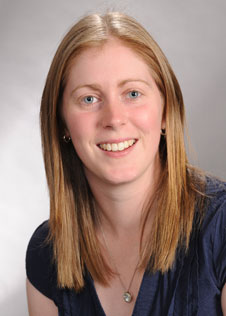

Carly Collins, Master of Public Health
I completed a Master of Public Health on “Edible gardens in New Zealand schools”.
Highlights from my study were seeing a project run from start to finish and being involved with it the whole step of the way, from planning, ethics approval and designing the questionnaires, to analysing data, drawing conclusions and writing papers for publication.
We were really excited and enthusiastic about our project, one of the challenges for us was making sure that our questionnaire didn't ask too many questions. We were really conscious that we wanted a questionnaire that schools would actually fill in accurately, rather than getting halfway through and rushing the rest because the questionnaire was too long.
Our research found that most of the edible gardens were established in the previous two years, so they were relatively new. It would be great to follow-up with the schools in a few more years, to see if the edible gardens were sustainable and to see what was happening to the crops now that they are being produced more regularly. Perhaps a great topic for a PhD!
I found that being part of a unit was a big advantage, and the Cancer Society Social and Behavioural Research Unit (SBRU) team involved me in all aspects of unit life. Being included as part of their team made me feel completely supported in my research and I always had a wide range of experts on hand to ask all the little questions that actually make a big difference to your research!
I am currently a Teaching Fellow in Epidemiology and Public Health. I mostly teach on a large first year course, and it is great to be able to tell students about the pathways available for Public Health study and the opportunities that Public Health can lead to.
A lot of what I teach involves getting the students to critically appraisal research articles. Now that I've completed my masters research, I am more able to explain the research process from start to finish, and talk about the challenges of achieving high response rates, over coming bias and reporting data in a way that is useful to the readers and stakeholders.
One of the most enjoyable parts of my role is interacting with the high school students when they come through for Tertiary Information Day. They've often never heard of Public Health and its great to be able to open their eyes to a whole different way of thinking about the health of New Zealanders. I can use the draw on the example of my research, which they can relate to given that they are still currently at school.
